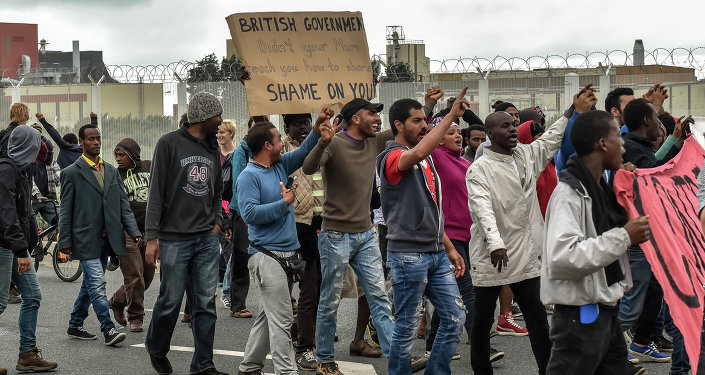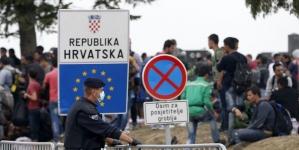-
Tips for becoming a good boxer - November 6, 2020
-
7 expert tips for making your hens night a memorable one - November 6, 2020
-
5 reasons to host your Christmas party on a cruise boat - November 6, 2020
-
What to do when you’re charged with a crime - November 6, 2020
-
Should you get one or multiple dogs? Here’s all you need to know - November 3, 2020
-
A Guide: How to Build Your Very Own Magic Mirror - February 14, 2019
-
Our Top Inspirational Baseball Stars - November 24, 2018
-
Five Tech Tools That Will Help You Turn Your Blog into a Business - November 24, 2018
-
How to Indulge on Vacation without Expanding Your Waist - November 9, 2018
-
5 Strategies for Businesses to Appeal to Today’s Increasingly Mobile-Crazed Customers - November 9, 2018
UN Refugee Agency: Over 10000 Migrants Cross Into Serbia in Recent Days
Long lines of migrants, many of them refugees from Syria, snaked through southern Serbia by foot on Monday before jumping on trains and buses north to Hungary and the last leg of an increasingly desperate journey to western Europe.
Advertisement
The rush over the border came after Macedonia lifted the blockade of its border with Greece; thousands of migrants had stormed past Macedonian police officers, who tried using force to stop their entry.
A spokeswoman for the United Nations High Commissioner for Refugees says it responded to the humanitarian needs of more than 10,000 refugees and migrants who arrived from Greece over the weekend, largely aiming to travel through to Serbia and beyond.
Some were pushed in wheelchairs and wheel-barrows or walked on crutches.
As part of a larger group of more than a dozen people, his family has travelled across Turkey, the Aegean Sea, Greece and Macedonia.
In Serbia, UNHCR has been supporting the authorities and non-governmental organisations in receiving and assisting new arrivals at the Presevo transit centre, in the south. The agency has released limited food stocks for distribution and in response to a Serbian government appeal, is looking at ways to bring in more supplies, including sleeping mats, blankets, tents and accommodation halls.
The influx ticked up on Monday to its highest daily rate this year – 2,093 – as many race to beat a fence that Hungary is building on its 175-km (110-mile) border with Serbia to keep them out.
Record numbers of refugees are streaming into EU member Hungary from Serbia, posing a new headache for regional leaders at a summit this week set to be dominated by Europe’s worst migrant crisis since World War II.
Visiting Macedonia on yesterday, Austrian Foreign Minister Sebastian Kurz talked to migrants and shook hands with them. Over the past week, the daily average was of 1,493 migrants.
“It is in the interest of all of us, Hungarians and Europeans, to develop some kind of order or regularity”, Kovacs said in an interview, warning that European cities could face an unsustainable situation if this isn’t done. She said continued violence in both Iraq and Syria and “worsening conditions” for Syrian refugees in the Middle East was driving them towards the frontiers of Europe. “We don’t just come to Europe to eat and sleep”.
The EU has struggled to find a solution to dealing with hundreds of thousands of migrants fleeing war and poverty.
The coast guard said it had rescued six people and recovered the bodies of two men, and was searching the area for the missing.
They are now making their way across Serbia to Hungary before moving on to richer countries such as Germany, Sweden and Britain.
Survivors told authorities that about 15 people were in the inflatable dinghy when it overturned.
Greece has been overwhelmed by more than 160,000 refugees and migrants so far this year.
Advertisement
The voyage is nearly complete: one last push into Hungary and they will have reached the European Union. “And the second point is, it’s also the fault of Greece if there is no support for the refugees there”, Kurz said.





























